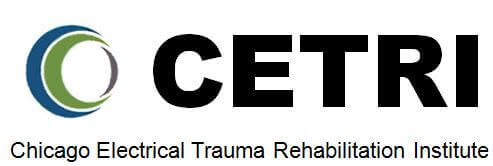
What Are the Long-Term Effects of Electrical Shock?
There are at least 30,000 electrical shock incidents per year reported in the United States. These events can result in both immediate and long-term health consequences. While the immediate effects are often restricted to the electrical current path through the body, the long-term health effects can be more systemic involving organs not directly damaged by the electrical shock current. Read on to learn more about how to recognize common long-term effects of electrical shock.
Long-Term Effects of Electrical Shock
Neurological and Neuropsychological Impact
Electrical injuries often involve immediate peripheral nerve injury manifested by abnormal peripheral sensory and/or motor function. This may manifest as chronic pain, tingling sensations, or muscle weakness which usually improve over time.
However, for reasons that remain unsolved, electrical shock survivors may experience long-lasting neurological symptoms that may adversely affect multiple aspects of the survivor’s life. One long-term consequence of electrical shock is its impact on brain function, especially cognitive and emotional aspects. This effect is manifested even when no significant electrical current passed directly through the brain. Various brain malfunctions are common after electrical injury including post-traumatic stress disorder (PTSD), anxiety, and depression are common neuropsychological consequences of electrical injuries. Shock victims may need management of their mental health needs affected by such trauma through therapy and support services.
Cardiac Complications
It is well known that electrical shock current passing through the heart can trigger cardiac arrhythmias. Electrical shock can also have lasting effects on the heart. The disruption of the heart’s electrical signals during an electrical injury can predispose individuals to cardiac arrhythmias or other cardiovascular complications in the long term. Monitoring any heart-related issues is important for individuals who have experienced electrical shock incidents.
Skin and Tissue Damage
Long-term skin and tissue damage are common outcomes of severe electrical injuries. Scars, burns, and changes in skin pigmentation may persist for years following an electrical shock incident. Proper wound care, scar management, and dermatological interventions can help individuals manage the long-term effects on their skin and tissues.
Get Multidisciplinary Treatment for Long-Term Electrical Shock Injuries
Many electrical shock injuries are not curable conditions; they are lifelong challenges that often require extensive therapy and medication. The long-term effects of electrical shock can vary based on the severity of the initial injury and individual factors. People suffering from electrical injuries should have comprehensive medical evaluations, follow-up care, and monitoring to mitigate any potential long-term consequences.
Chicago Electrical Trauma Rehabilitation Institute is a multidisciplinary rehabilitation and research program for survivors of electrical shock entirely focused on working with primary care physicians and therapists to help electrical shock survivors as collaborate with four major university hospitals in performing the research needed to find more effective rehabilitation strategies for electrical injury survivors. We promote research development and multidisciplinary care to help survivors of electrical shock injury achieve successful recovery following electrical shock injury. Contact us to learn more.
